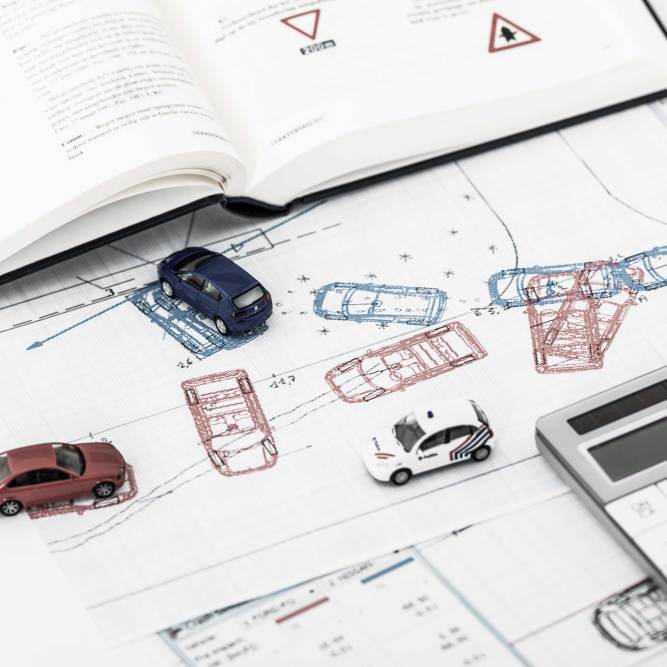
To Hire or Not to Hire: Considerations in Retaining and Using Accident Reconstruction or Biomechanical Experts Properly
This article focuses on the practical considerations that an attorney should take into account when making the decision to hire and to retain an accident reconstructionist or biomechanical expert. While certainly not exhaustive, the article covers the basic issues to consider when making such a decision, namely how soon should an attorney hire an expert, how an expert may assist with a case, factors to consider when making a hiring decision, and how to vet a potential expert.
When to hire an expert? In the case of an accident reconstructionist, hire an expert as soon as possible. The passage of time is not our friend when it comes to accident reconstructionists because after an accident the scene and the vehicles or the trucks involved can change significantly. For example, environmental factors such as rain can materially change the scene of an accident. Further, investigating agencies can alter the scene and the vehicles or the trucks involved in an accident in ways that render a reconstruction less effective. For example, after an accident, the Department of Transportation may come out and repair a guardrail within a few days, which may substantially alter the ability to reconstruct an accident effectively. While time is not always as critical when hiring a biomechanical expert, it is still worthy of considering early so that the biomechanical expert can examine the scene and the vehicles or the trucks involved. It always helps an expert’s credibility if he or she is able to testify that he or she inspected the vehicles or the trucks involved and personally visited the scene of an accident.
It is not simply a matter of identifying a testifying expert for a trial. As with the first consideration, the decision to retain an expert, and in particular an accident reconstructionist, should not be based solely on whether or not the expert is expected to testify during a trial. A consulting expert can be equally or more valuable to an attorney handling a claim as a testifying expert. Often, the early retention of a consulting expert can help evaluate the merits of an anticipated claim and to handle the claim proactively. In a case of clear liability with valid medical specials and injuries, the legal expense of an expert can pale in comparison to the benefit of an having early evaluation and resolution of a claim, especially if there are extenuating factors unknown to a claimant and the claimant’s counsel.
The initial perception of liability should not influence the decision. One important fact to remember is that accident reconstructionists and biomechanical experts are not hired just for the purpose of challenging liability in an accident. Instead, such experts can be equally useful in explaining how an accident actually occurred if the versions being told diverge or to challenge the injuries claimed. For example, by explaining how an accident occurred, an accident reconstructionist can help negate any extenuating factors that might otherwise warrant a punitive damages charge. Similarly, a biomechanical expert, with the aid of a good accident reconstruction, can provide critical testimony that the physical forces from an accident were insufficient to cause, or inconsistent with, the injuries claimed by a plaintiff. Lastly, there is a genuine possibility that an initial understanding or impression of liability is incorrect. For instance, a driver may claim that a plaintiff was in his or her lane of travel when the reconstruction clearly shows that this was not true, and instead, the driver was actually in the plaintiff’s lane of travel, which clearly would indicate liability. This only has to happen once for someone to appreciate the all-important maxim: trust, but verify. So a prudent attorney would fight the reluctance to hire an expert just because his or her initial impression is that a client would have no liability for an accident.
Who to hire? When retaining an expert the best way to evaluate who to hire is to examine the expert critically as if he or she was an opposing expert. For instance, has he or she ever been struck or had his or her opinions limited? Are there any other issues in his or her background that would serve as good cross-examination fodder? An expert should be vetted and researched in the same way that an opposing expert would be because it is unlikely that an expert will offer information voluntarily that could adversely affect the decision to retain him or her. Further, be cognizant of hiring an expert that you have worked with frequently and who earns most or all of his or her income as a testifying expert as opposed to hiring someone who only infrequently provides legal consulting services. The best way to handle this is to strike a balance by having in effect a rotation of experts with varying degrees of experience and involvement in legal consulting to avoid becoming “beholden” to any one expert. In the end, the most important consideration is to make sure that the expert retained is capable of doing the job assigned and of providing deposition and trial testimony effectively, if necessary.
As noted previously, this is a non-exhaustive list of items to consider when retaining an expert. The most critical aspect, though, is to evaluate quickly whether an expert is even needed, and if so, to put him or her to work quickly. Frequently, time is the greatest enemy to retaining and using experts effectively in the defense and handling of a claim.
By: Jason W. Hammer
Click here to see this Article, as featured in Volume 13, Issue 37 of the Defense Research Institute publication “The Voice.” Jason is a partner in the Alpharetta, Georgia, office of Lueder Larkin & Hunter LLC. Their practice focuses mainly on trucking, auto, premises, and products liability cases in Alabama, Georgia, and South Carolina. Mr. Hammer is a members of the DRI Trucking Law Committee.